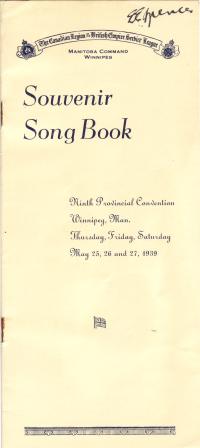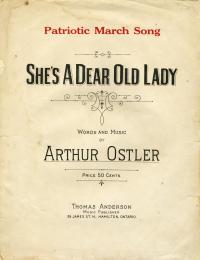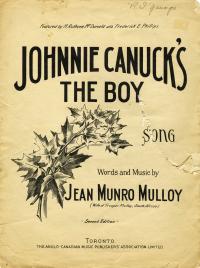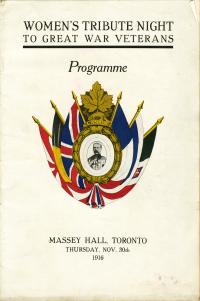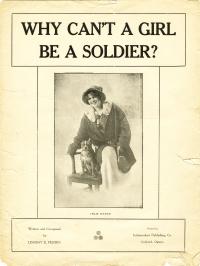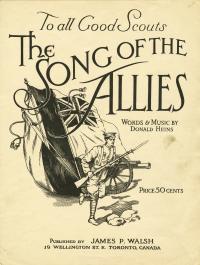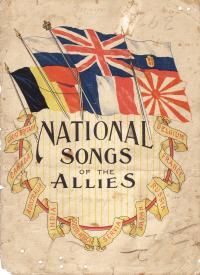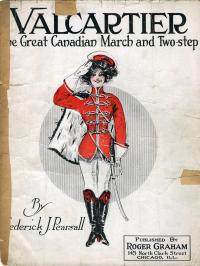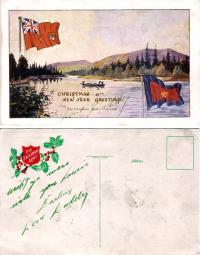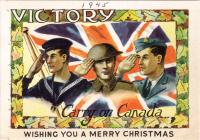Relaxing
Sing along with ex-soldiers
When veterans of the First World War got together, they almost always returned to the songs they had sung while in uniform: "We are Fred Karno's Army," "Far, far from Ypres," "There's a Little Wet Home in the Trench," "Madame, Your Beer's No Bon," and probably others whose lyrics could not be repeated in polite company.
Mother Britain and her children
This song offered a version of the Mother Britain theme, envisioning Great Britain as an elderly dowager with "many sons and daughters / Scattered far across the waters" who would come to her aid in time of war.
"We are jolly glad to go"
Lorne Mulloy lost his sight in the Boer War, and became famous in Canada as The Blind Trooper. During the First World War, his wife Jean achieved a level of celebrity as a composer of patriotic songs.
Honouring veterans in Toronto
This concert, which featured something called a Biscuit Tin Solo by Sergeant A.E. Blake, was one of the first events organized in Toronto by the Great War Veterans' Association.
"The Canuck maid who is ne'er afraid"
This privately-published song envisioned the women of Canada in the firing line with their men, because they can "carry a gun good as any mother's son."
Fighting together
This otherwise conventional patriotic song is noteworthy for its reference to the Canadian mosaic, "where nations are all mixed."
Anthems of the Allies
Very early in the First World War, a Canadian publisher released this collection of national anthems of the Allied nations, Great Britain and the Dominions, Belgium, France, Japan, Russia, and Serbia. It included both "O Canada" and "The Maple Leaf Forever."
A march for Valcartier
Valcartier, Quebec, where the first Canadian units gathered before proceeding overseas in 1914, was well known outside of Canada, as this work by a composer in the United States suggests.
Overseas at Christmas
This Christmas card, produced by the Salvation Army, used an idyllic Canadian wilderness scene rather than any holiday imagery.
A last Christmas at war
For the unidentified soldier who sent this card home in 1945, the best Christmas present was the knowledge that this was the last wartime Christmas to be spent away from home.

